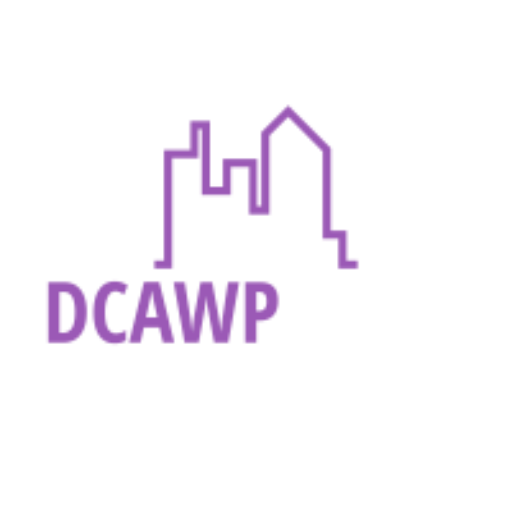Demystifying Website Hosting: A Comprehensive Guide to Web Hosting Services

In the fast-paced digital era, having a robust online presence is imperative for individuals and businesses alike. One of the fundamental aspects of establishing this presence is website hosting. Website hosting plays a pivotal role in making your website accessible to users worldwide, ensuring a seamless experience for visitors. In this comprehensive guide, we will delve into the intricacies of website hosting, covering everything from the basics to advanced considerations.
Understanding Website Hosting
1. What is Website Hosting?
At its core, website hosting refers to the service that allows individuals and organizations to make their websites accessible on the internet. Hosting providers offer the infrastructure and resources needed to store website files and data, making it accessible to users around the globe. Without hosting, your website would not be accessible to anyone beyond your local server environment.
2. Types of Website Hosting
a) Shared Hosting: This is a cost-effective option where multiple websites share resources on a single server. Ideal for small websites with moderate traffic.
b) Virtual Private Server (VPS) Hosting: Offers a virtualized server environment with dedicated resources. It provides more control and scalability compared to shared hosting.
c) Dedicated Hosting: Involves having an entire physical server dedicated to a single website. This option is suitable for large websites with high traffic volumes.
d) Cloud Hosting: Utilizes a network of virtual servers, providing flexibility and scalability. Resources are distributed across multiple servers, enhancing reliability.
e) WordPress Hosting: Specifically optimized for WordPress websites, offering features like automatic updates and enhanced security.
Key Factors in Choosing a Hosting Provider
3. Reliability and Uptime
Reliability and uptime are critical factors in selecting a hosting provider. A reliable host ensures that your website is consistently accessible, minimizing downtime and ensuring a positive user experience. Look for providers with a track record of high uptime percentages.
4. Performance and Speed
Website speed is a crucial factor in user satisfaction and search engine rankings. Choosing a hosting provider with high-performance servers and robust infrastructure can significantly impact your website’s loading times. Consider the geographical location of the server to minimize latency.
5. Scalability
As your website grows, scalability becomes essential. A good hosting provider should offer scalable solutions, allowing you to upgrade or downgrade your hosting plan based on your website’s evolving needs. This flexibility ensures that your hosting can grow with your business.
6. Security Features
Ensuring the security of your website and its data is paramount. Look for hosting providers that offer SSL certificates, firewalls, and other security measures to protect your website from potential threats. Regular security updates and backups should also be part of the hosting package.
The Role of Domain Names in Website Hosting
7. Registering a Domain Name
A domain name is your website’s address on the internet. Understanding how to register and manage your domain is crucial for establishing and maintaining your online identity. Choose a domain name that is memorable, reflects your brand, and is easy to spell.
8. Domain Name System (DNS)
The Domain Name System (DNS) is a critical component of website hosting, translating domain names into IP addresses. Exploring how DNS works and its importance in website accessibility is essential for website owners. Familiarize yourself with DNS settings to manage domain-related configurations.
Website Hosting Management Tools
9. Control Panels
Control panels provide a user-friendly interface for managing various aspects of your hosting account. Familiarizing yourself with popular control panels like cPanel or Plesk can simplify tasks such as file management, email setup, and domain management. These tools empower users with the ability to control and customize their hosting environment.
10. Content Management Systems (CMS)
Content Management Systems like WordPress, Joomla, and Drupal simplify website creation and management. Understanding how these systems interact with your hosting environment can enhance your website building experience. CMS platforms often come with their hosting requirements, and compatibility is crucial for optimal performance.
Tips for Optimizing Website Performance
11. Content Delivery Networks (CDNs)
Implementing a Content Delivery Network can significantly improve your website’s performance by distributing content across multiple servers worldwide, reducing latency and speeding up loading times. CDNs are particularly beneficial for websites with a global audience.
12. Caching Mechanisms
Utilizing caching mechanisms, such as browser caching and server-side caching, can enhance website speed by storing static resources locally and reducing the need for repeated requests to the server. Explore caching plugins and settings to optimize your website’s performance.
Troubleshooting and Support
13. Common Hosting Issues
Understanding and addressing common hosting issues, such as server errors, downtime, and slow performance, is crucial for maintaining a seamless online presence. Regularly monitor your website for any anomalies and be prepared to troubleshoot issues promptly.
14. Customer Support
Choosing a hosting provider with reliable customer support ensures that you have assistance when facing technical challenges. Explore the support channels offered by hosting providers, such as live chat, ticketing systems, and phone support. Responsive and knowledgeable support can be a lifesaver during critical situations.
Conclusion
In conclusion, website hosting is a fundamental aspect of establishing and maintaining a successful online presence. By understanding the various types of hosting, key factors in choosing a provider, the role of domain names, management tools, and optimization techniques, website owners can make informed decisions to ensure their websites are secure, reliable, and performant. Keep exploring the dynamic world of website hosting to stay ahead in the ever-evolving digital landscape. Remember, your hosting choice can significantly impact the success of your online venture, so choose wisely.




